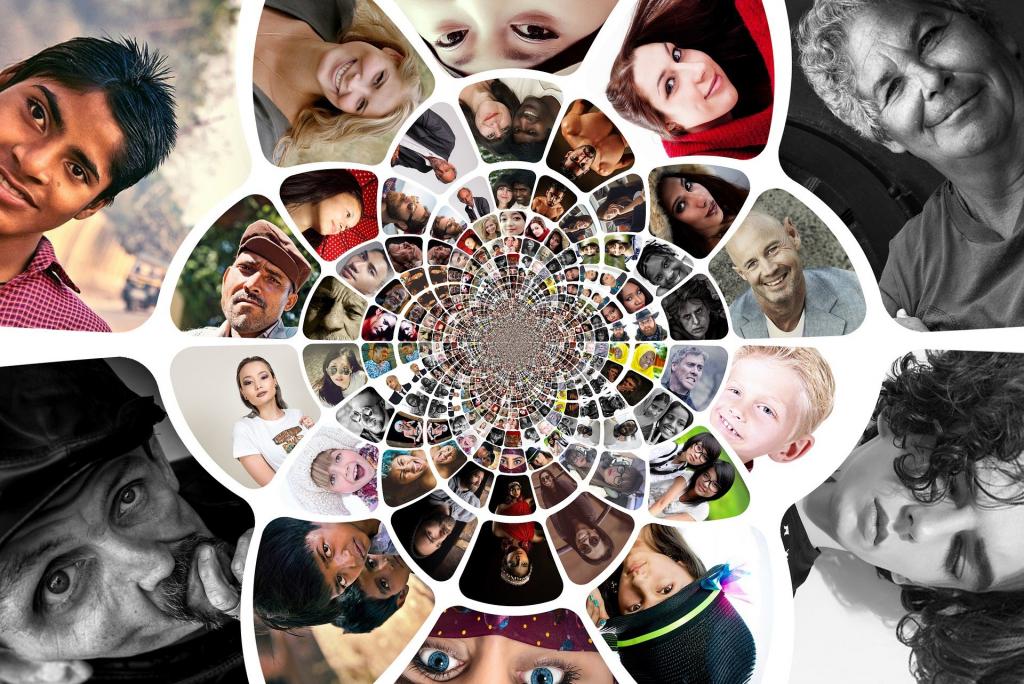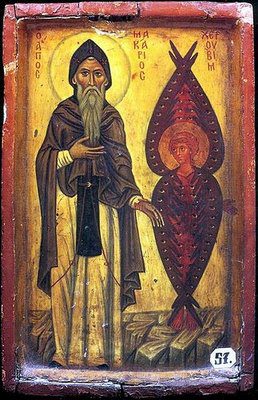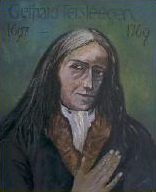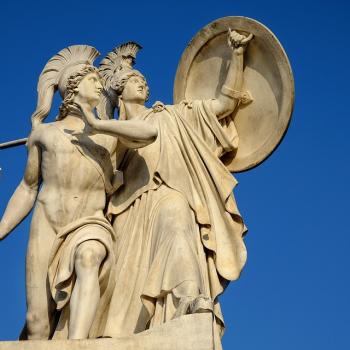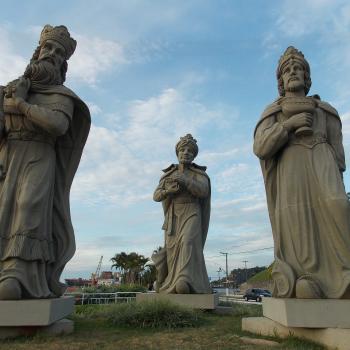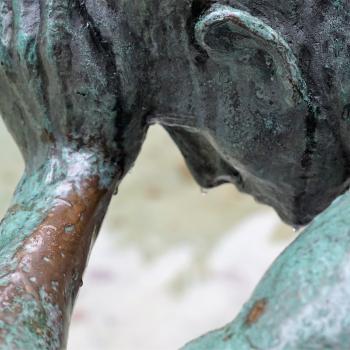What can we really say about the diversity of believers, the myriad ways we all walk the Way? How vast, how disparate, how incredibly kaleidoscopic are the channels of God’s grace in different lives! We who seek God in the face of Jesus Christ and the life of the Spirit all rush together in one direction, toward one Center, but our experiences and prayers and visions and standards explode with multitudinous variety.
“All think they are Christians, for a proclamation of their faith in Christ, or even for some virtues, yet true Christians are few, they who are rich in the Holy Spirit, who enjoy the numerous pleasures of Grace, who delight in the heavenly desire of the Spirit, who are adorned in their soul with several heavenly clothes of Gifts; they who have Christianity not in confession and faith in words, but in the power and energy of the Spirit, they who touch unceasingly in their mind with the hands of the soul the heavenly gold, the knowledge and narration of the mysteries of the Spirit, only they are true Christians.” ~ Macarius the Great
Macarius, my brother, lived and died nearly 1700 years ago. He was nothing like me. Male, celibate, and saintly. Egyptian, ascetic, and visionary. A priest, a leader, and a healer. His life story includes an encounter with a cherub who called him to the desert monastic life. His writings, as you get a taste of above, are all about how to turn the soul to God in utter love and devotion. Here he is with the cherub. No family resemblance, agreed?
Macarius’ world is nearly unimaginable for many of us who can barely remember not having smartphones. When I read about a third-grade classroom seeing a typewriter in a museum, I wonder at the trajectory of technological speed that we’re all on, a trajectory that cannot even make sense of a writing life that employed reed nibs and papyrus or, later, quills and ink pots. Smoky oil lamps, the constant need to draw water, the lack of creature comforts we take for granted. What was life like in a 4th-century Egyptian desert?
“Withdraw into yourself a little and keep quiet before the face of God, then look gently and perfectly frankly at God who is so near to us, to let Him see if there is anything in us or near us which must be handed over, and assure Him of our hearty consent to give up everything to Him. Remain exposed to Him in the light of truth simply, in this way, without any investigations or scruples of your own, for as long as God gives grace.” ~ Gerhard Tersteegen
Gerhard Tersteegen, my brother, lived and died 250 years ago. He was nothing like me. Male, celibate, and saintly. German, pietist, and a weaver by trade. Renowned for his spiritual wisdom, his poetry and hymns, and his gentleness. He was a favorite resource for John Wesley. Oh, and he found inspiration in the works of his brother, Macarius. Here he is in his prayerful posture.
About Tersteegen’s world, author Emily Chisholm writes: “Germany, at the beginning of the eighteenth century, was war-ridden and morally and spiritually impoverished. A thirty-years’ war had cost her twelve million lives, four-fifths of her population, and had left behind it a land of ravaged farmsteads, destroyed stock, famine, disease, bestiality, and even cannibalism. Religion was at its lowest ebb. In 1686 there was not a single copy of the Bible or New Testament in any bookshop in Leipzig. Yet in this darkness there glowed a few embers of the pure fire which were in time to enlighten Germany, and, by warming the heart of John Wesley, revive religion in England.”
We Americans in the 21st century have had a choppy road for several years, but imagine losing 12 million people, or, to take the equivalent 4/5 measurement of the U.S. population today (333,368,397), it would be a loss of over 266 million people. Christian spirituality has taken a hit in recent years, but we’re not to the place where there are no sellers (and by implication, no interested buyers) in the scriptures.
I just think about Macarius and Tersteegen as fellow believers, as men who believed in Jesus Christ and sought the will of God for their own lives. I have nearly nothing in common with them and yet I call them brothers. Macarius’ prayers probably sounded nothing like mine. Tersteegen’s daily life was nothing like mine. How wonderful it is that the vast distances between Macarius, Tersteegen, and me simply dissolve when we approach Jesus. There, before Our Lord, I turn to my left, I turn to my right, and I find Egyptian monks and German pietists and Chinese house Christians and Indian Saint Thomas Christians and Nigerian Anglicans and Bolivian Pentecostals; I stand next to an English anchorite and a French Carmelite and Serbian Orthodox metropolitan and an Assemblies of God evangelist and a nondenominational megachurch pastor from Texas.
There is no one right way to do this life in Jesus.
Life in the Spirit means being led by the Spirit in the ways of Jesus, but our contexts, our historical and cultural parameters, are the milieu within which those ways will become visible. Each of us is, as Paul points out, a letter of Christ, written with the Spirit of the living God on the tablet of our hearts.
As a historian, I rather love reading other people’s mail.


